
Fiji, officially the Republic of Fiji, is an island country in Melanesia, part of Oceania in the South Pacific Ocean. It lies about 1,100 nautical miles north-northeast of New Zealand. Fiji consists of an archipelago of more than 330 islands—of which about 110 are permanently inhabited—and more than 500 islets, amounting to a total land area of about 18,300 square kilometres (7,100 sq mi). The most outlying island group is Ono-i-Lau. About 87% of the total population live on the two major islands, Viti Levu and Vanua Levu. About three-quarters of Fijians live on Viti Levu's coasts, either in the capital city of Suva, or in smaller urban centres such as Nadi or Lautoka. The interior of Viti Levu is sparsely inhabited because of its terrain.
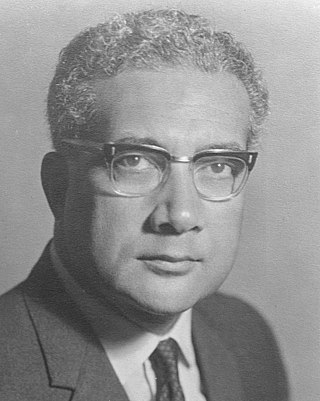
RatuSir Kamisese Mara, was a Fijian politician who served as Chief Minister from 1967 to 1970, when Fiji gained its independence from the United Kingdom, and, apart from one brief interruption in 1987, as the first Prime Minister from 1970 to 1992. He subsequently served as president from 1993 to 2000.
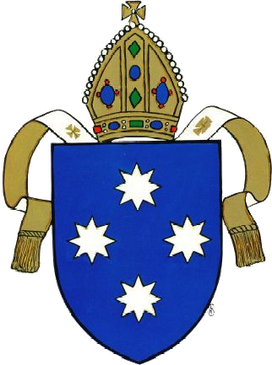
The Diocese of Sydney is a diocese in Sydney, within the Province of New South Wales of the Anglican Church of Australia. The majority of the diocese is evangelical and low church in tradition.
Brigadier-General RatuEpeli Ganilau, MC, MSD, was a Fijian military officer and politician. His career previously encompassed such roles as Commander of the Fiji Military Forces and Chairman of the Bose Levu Vakaturaga. On 15 January 2007 he was sworn in as Minister for Fijian Affairs in the interim Cabinet formed in the wake of the 2006 Fijian coup d'état which deposed the Qarase government on 5 December 2006.

Sitiveni Ligamamada Rabuka is a Fijian politician, sportsman, and former soldier who has been serving as Prime Minister of Fiji since 24 December 2022. He was the instigator of two military coups in 1987. He was democratically elected as Prime Minister of Fiji, serving from 1992 to 1999, and again in 2022, leading a three-party coalition. He also served as Chairman of the Great Council of Chiefs from 1999 to 2001, and later as Chairman of the Cakaudrove Provincial Council from 2001 to 2008.
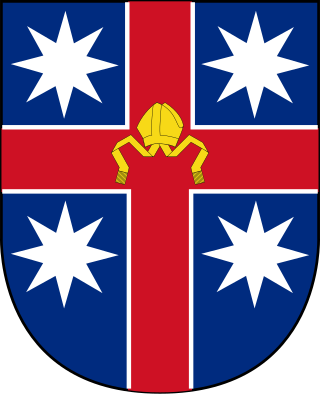
The Anglican Church of Australia, originally known as the Church of England in Australia and Tasmania, is a Christian church in Australia and an autonomous church of the worldwide Anglican Communion. It is the second largest church in Australia after the Roman Catholic Church.

Peter Frederick Jensen is a retired Australian Anglican bishop, theologian and academic. From 1985 to 2001, he was principal of Moore Theological College. From 2001 to 2013, he was the Archbishop of Sydney and Metropolitan of the Province of New South Wales in the Anglican Church of Australia. He retired on his 70th birthday, 11 July 2013. In late 2007, Jensen was one of the founding members of the Global Anglican Future Conference (GAFCON), which he served as General Secretary. He stepped down in early 2019 and was succeeded by Benjamin Kwashi, former archbishop of Jos in Nigeria.
The Anglican Church in Aotearoa, New Zealand and Polynesia, formerly the Church of the Province of New Zealand, is a province of the Anglican Communion serving New Zealand, Fiji, Tonga, Samoa, and the Cook Islands. Since 1992 the church has consisted of three tikanga or cultural streams: Aotearoa, New Zealand, and Polynesia. The church's constitution says that, among other things, it is required to "maintain the right of every person to choose any particular cultural expression of the faith". As a result, the church's General Synod has agreed upon the development of the three-person primacy based on this three tikanga system; it has three primates, each representing a tikanga, who share authority.
Jabez Leslie Bryce was a Tongan-born Anglican bishop. He was the Bishop of Polynesia in the Province of New Zealand, which includes most of the South Pacific. He served from 1975 until his death in 2010. He was elevated to Archepiscopacy of the diocese in 2006.
Asesela Ravuvu was a Fijian academic and political leader. The Director of Pacific Studies at the University of the South Pacific, Professor Ravuvu was appointed to the Fijian Senate by the Great Council of Chiefs in 2001, to one of the 14 Senate seats allocated to the Great Council. As of September 2005, he held the position of Leader of the House in the Senate, but retired from this body in 2006.
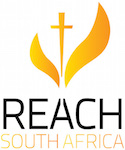
The Reformed Evangelical Anglican Church of South Africa (REACH-SA), known until 2013 as the Church of England in South Africa (CESA), is a Christian denomination in South Africa. It was constituted in 1938 as a federation of churches. It appointed its first bishop in 1955. It is an Anglican church and it relates closely to the Sydney Diocese of the Anglican Church of Australia, to which it is similar in that it sees itself as a bastion of the Reformation and particularly of reformed doctrine.

Nadroga-Navosa is one of the fourteen provinces of Fiji and one of eight based in Viti Levu, Fiji's largest island. It is about 2,385 square kilometers and occupies the South-West and Central areas of Viti Levu, Fiji's principal island. The province includes the Mamanuca Archipelago,Malolo Islands, off the west coast of Viti Levu, Vatulele, as well as the remote Conway Reef in the southwest. The population at the 2017 census was 58,931, being the fifth largest province. The main town in Nadroga-Navosa is Sigatoka, with a population of 9622.

The Anglican Diocese of Bathurst is located in the Province of New South Wales. It includes the cities of Orange, Bathurst and Dubbo. The Bishop is the Right Reverend Mark Calder, installed on 23 November 2019.
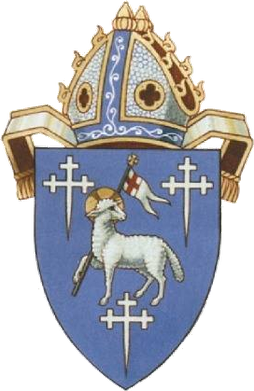
The Diocese of North Queensland is a diocese of the Anglican Church of Australia, founded in 1879. It is situated in the northern part of the state of Queensland, Australia. As part of the Province of Queensland, it covers the Torres Strait Islands in the north, the entire Cape York Peninsula and the cities of Mount Isa, Cairns, Townsville and Mackay. The diocesan cathedral is St James' Cathedral, Townsville. The Bishop of North Queensland is Keith Ronald Joseph, who was consecrated and installed on 31 March 2019.

The Fijian coup d'état of December 2006 was a coup d'état in Fiji carried out by Commodore Frank Bainimarama against Prime Minister Laisenia Qarase and President Josefa Iloilo. It was the culmination of a political crisis that had begun the previous year when the Qarase government introduced three bills to the Fijian Parliament. The Qoliqoli, Land Tribunal, and Reconciliation, Tolerance, and Unity Bills dealt with the ongoing ethnic conflicts in Fiji and the aftermath of the 2000 coup, and were considered to be pro-ethnic Fijian. Bainimarama, the Commander of the Republic of Fiji Military Forces (RFMF), presented the government with a list of demands on October 16 that included withdrawing the bills. Attempts at negotiation failed and the military launched a coup on 4 December. Parliament was dissolved, Qarase and his cabinet were dismissed, and some civilian officials were placed under house arrest. After the Great Council of Chiefs refused to appoint a cabinet friendly to the military, Bainimarama reached an understanding with Iloilo and reinstated him as president on 4 January 2007. Iloilo then appointed Bainimarama acting prime minister in charge of the Interim Cabinet.

The Diocese of Polynesia, or the Tikanga Pasefika serves Anglicans in Fiji, Tonga, Samoa and the Cook Islands, within the Anglican Church in Aotearoa, New Zealand and Polynesia. The diocese's first bishop was consecrated in 1908. The diocese's cathedral is Holy Trinity Cathedral in Suva, Fiji.

Indo-Fijians, also known as Indian Fijians, are Fijian citizens of South Asian descent, and include people who trace their ancestry to various regions of the Indian subcontinent. Although Indo-Fijians constituted a majority of Fiji's population from 1956 through to the late 1980s, discrimination and the resulting brain drain resulted in them numbering 313,798 (37.6%) out of a total of 827,900 people living in Fiji as of 2007.
Apimeleki Nadoki Qiliho is an indigenous Fijian from the Province of Nadroga-Navosa in the Fiji Islands and a retired Anglican bishop.
Robert Hardwick is a retired bishop of the Anglican Church of Canada. He served as the 12th Bishop of the Diocese of Qu'Appelle, which covers much of the southern part of the Canadian province of Saskatchewan. Originally from England, he and his family moved to Canada in 2001, where he became parish priest at St Stephen the Martyr, Swift Current, Saskatchewan. In 2008 he was appointed executive archdeacon for the diocese and in 2012 he was elected Bishop of Qu'Appelle at an electoral synod. He retired in 2021.

The majority of Fiji's islands were formed through volcanic activity starting around 150 million years ago. Today, some geothermic activity still occurs on the islands of Vanua Levu and Taveuni. Fiji was settled first by the Lapita culture, around 1,500–1,000 years BC, followed by a large influx of people with predominantly Melanesian genetics about the time of the beginning of the Common Era. Europeans visited Fiji from the 17th century, and, after a brief period as an independent kingdom, the British established the Colony of Fiji in 1874. Fiji was a Crown colony until 1970, when it gained independence as the Dominion of Fiji. A republic was declared in 1987, following a series of coups d'état.













